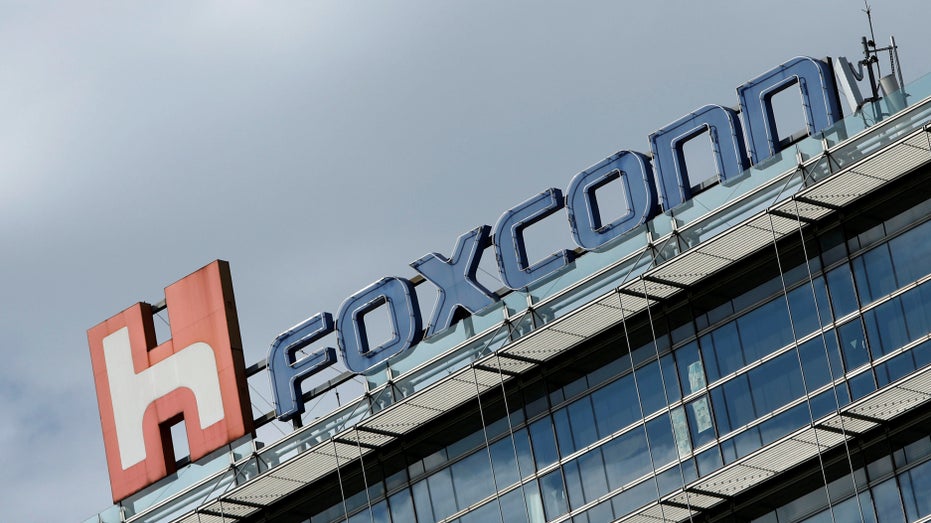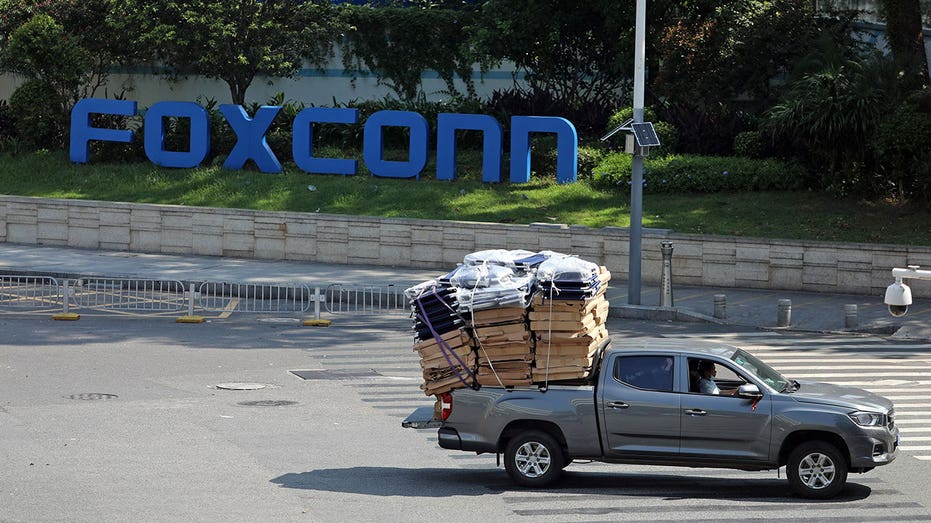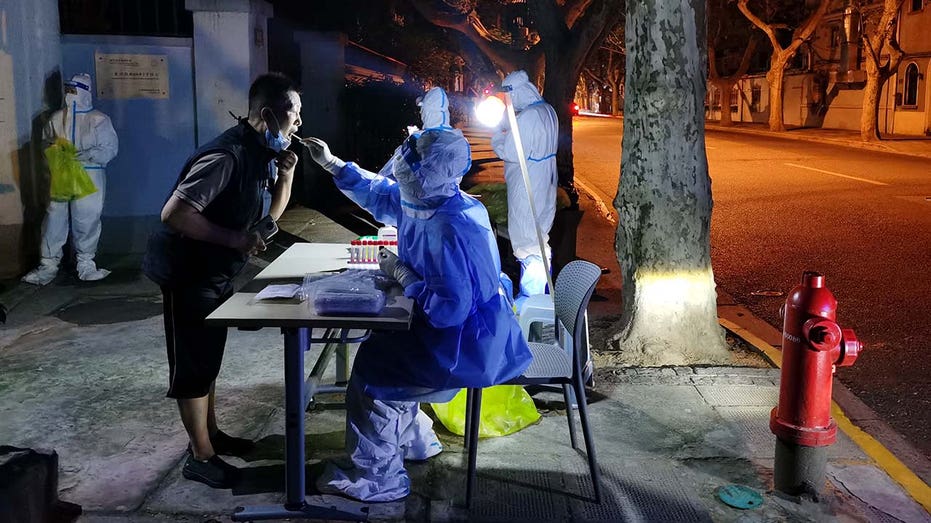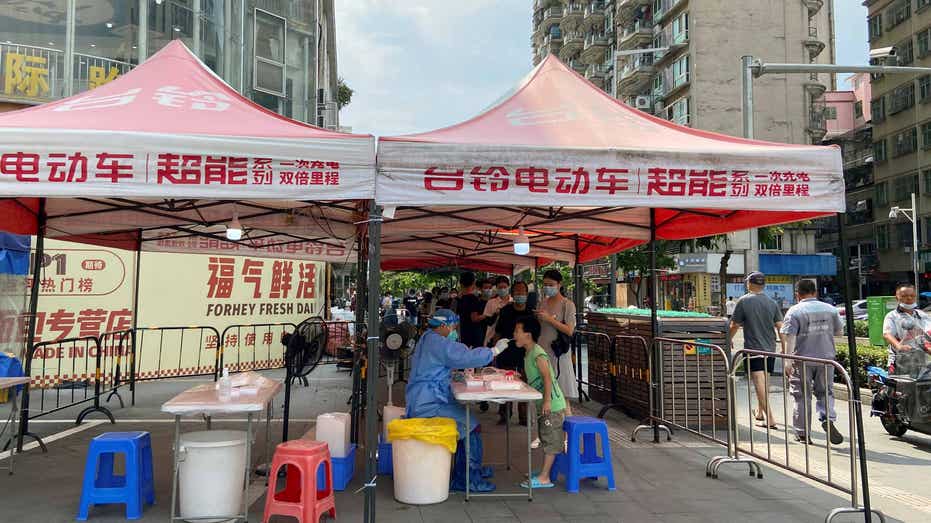COVID-19 outbreak at Foxconn's largest factory in China sends workers fleeing: reports
Video on social media site Weibo has attracted some 600 million views so far
Dr. Siegel: No way to measure damage COVID lockdowns did to kids
Fox News medical contributor reacts to Dr. Fauci saying COVID lockdowns did not harm children on 'Varney & Co.'
BEIJING, China – BEIJING, China - Foxconn's biggest assembly plant in Zhengzhou, China, is battling a new wave of COVID cases, causing thousands of people to flee the city. As of Saturday, photos and videos of Foxconn employees trying to find a way home are flooding the internet.
The unrest started on Oct. 19, when Foxconn banned employees from eating in canteens, ordering them to eat in their dormitories instead. Seven new locally transmitted cases were reported that day in a city of nearly 13 million people. In the 10 days following, at least 156 more people tested positive, causing unrest to grow – in part because online rumors spread about more than 20,000 positive cases in and around the Foxconn factory.
On Oct. 26, Foxconn issued a statement rebuking the rumors, but they refused to give any additional information on the number of positive cases inside the factory. On Sunday, Foxconn put out a statement saying there are no factory cases. So far, the news has attracted a staggering 600 million views on China social media site Weibo.
But the panic already seemed to spread through the factory. As of yesterday, numerous posts reportedly showing Foxconn employees hitting the road are flooding Chinese social media. Most Foxconn workers are migrants who share small dormitories with coworkers. Videos show that the fear of being locked up for an unknown duration, food and water shortages, and lack of health care as China continues to pursue its zero-COVID-19 policy caused many people to pack their belongings and go home.
MODERNA TURNS DOWN CHINA REQUEST FOR VACCINE TECHNOLOGY: REPORT
Videos on social media show thousands of people walking on the highway or getting rides on open trucks. Other people from surrounding areas have come out to help the Foxconn workers by giving them free food and water.

The logo of Foxconn, the trading name of Hon Hai Precision Industry, on the company's building in Taipei, Taiwan, March 30, 2018. (Reuters/Tyrone Siu / Reuters Photos)
Reuters quoted reaction from various Chinese social media platforms: "They were Foxconn employees who escaped from the factory and were walking home," wrote a user of WeChat in a post about the social media images.
Another user said: "Some people walked amid wheat fields with their luggage, blankets, and quilts. I couldn't help but feel sad."
WORLD BANK CUTS CHINA GROWTH FORECAST AS COVID-19, REAL-ESTATE CRUNCH TAKE TOLL
According to the same Reuters report, Zhengzhou, capital of Henan province, reported 167 locally transmitted COVID-19 cases in the seven days to Oct. 29, up from 97 infections in the prior seven-day period. Taiwan-based Foxconn, which has about 300,000 workers in Zhengzhou, has not yet disclosed the number of infected workers.

A truck passes by a compound of the electronics manufacturer Foxconn, which is under strict access control to prevent COVID-19, in Shenzhen in south China's Guangdong province, Sept. 3, 2022. (AH CHI/ Feature China/Future Publishing via Getty Images / Getty Images)
In an attempt to get a grip on the chaotic migration, the Zhengzhou authorities and Foxconn promised their employees they would organize transportation. "Please stay where you are. The staff and vehicles will contact and serve you as soon as possible," read one of the many messages Sunday. As of now, they have selected seven pickup points where people can gather.
CHINA APPROVES LIVZON PHARMACEUTICAL'S COVID VACCINE AS A BOOSTER
In anticipation of the migrant workers returning home, many surrounding cities have communicated their COVID-19 prevention and control measures. Like most places in China, a seven-day quarantine is mandatory when one returns from a medium-risk area like Zhengzhou.

Medical workers work at a curbside COVID testing spot in Shanghai, China, June 3, 2022. (Ray Young/ Feature China/Future Publishing via Getty Images / Getty Images)
Since the start of the pandemic in late 2019 and early 2020, numerous places have been put under strict lockdown measures that can easily stay in place for months. Earlier this year, the residents of Shanghai were confined to their homes for more than two months, many without proper access to food or medical care. On Tuesday, Shanghai counted 36 confirmed cases, enough to label 18 parts of the city as "medium-risk areas."
SHANGHAI IKEA CUSTOMERS FLEE AS OFFICIALS ATTEMPT TO LOCK DOWN STORE
An area is labeled medium risk if a person infected with COVID, symptomatic or asymptomatic, lives in the area or passes through it. All people living in that vicinity will be required to stay within their own residential area, and, in most cases, are subjected to daily COVID tests. If no new infections are found in the relevant area for seven consecutive days, it will be declared low-risk.

A health care worker tests people for COVID following an outbreak in Shenzen, China, on Aug. 30, 2022. (Reuters/David Kirton/Files / Reuters Photos)
Last week Reuters reported that, for a third day in a row, there had been over a thousand new cases across China.
Reuters contributed to this report.
GET FOX BUSINESS ON THE GO BY CLICKING HERE




















